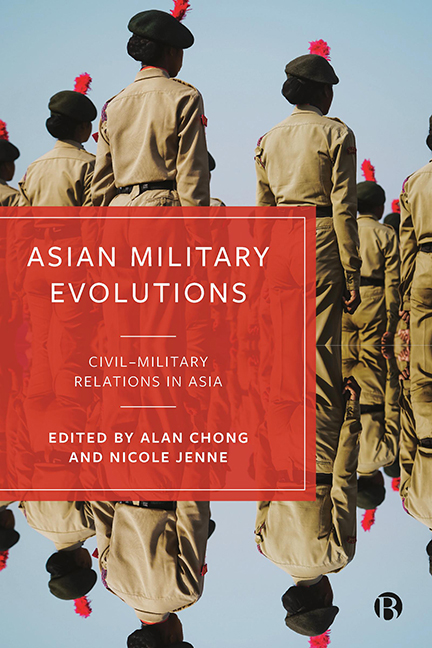Book contents
3 - Business as Usual despite Reform: The Indonesian Military under Jokowi
Published online by Cambridge University Press: 18 January 2024
Summary
Across the two administrations of Joko Widodo (popularly known as Jokowi), the Army-dominated TNI (Tentara Nasional Indonesia – Indonesian National Military) has experienced a resurgence. The military’s present influence is not what it was during Suharto’s New Order (1967–98) when the dwi fungsi (dual function) doctrine gave the TNI sweeping political power. Yet, the self-styled civilian reformer has synergized the TNI and its hardline elements. Jokowi has extolled and supported institutional and individual narratives of indispensability to national stability and has opened the door to New Order-era figures’ reclamation of political roles.
Since Jokowi assumed the presidency in 2014, regional and national military authority has grown. The TNI has signed Memorandums of Understanding with civilian agencies for the provision of security and has become involved in government initiatives such as rural food self-sufficiency programmes. The TNI’s demands for a greater role in counterterrorism operations grew during Jokowi’s second term. On top of that, the military has become indispensable to Indonesia’s COVID-19 response. On balance, the military is evolving into an institution that seeks an outward facing role while continuing to fulfil its mandate as national guardian.
Under Jokowi the number of ex-TNI hardliners in cabinet positions and courting political office has increased, bringing with them the normalization of intolerance. They have escalated discrimination, threats, intimidation and violence against LGBTQ+ communities and survivors of the state-sponsored anti-communist violence of 1965–6. Talk of proxy wars inform crackdowns against ‘subversive elements’. Inflammatory rhetoric about the nation’s moral decay, a sustained unapologetic stance about human rights and conservative ideas about state defence prevail.
For progressives, the appearance of hardliners at the helm extinguished hope that Jokowi would honour his promises of meaningful socio-political reform. ‘There is now scholarly consensus,’ a recent Brookings report states, ‘that Indonesia’s democracy has not just stagnated but is regressing’ (Sambhi, 2021).
- Type
- Chapter
- Information
- Asian Military EvolutionsCivil-Military Relations in Asia, pp. 46 - 67Publisher: Bristol University PressPrint publication year: 2023

